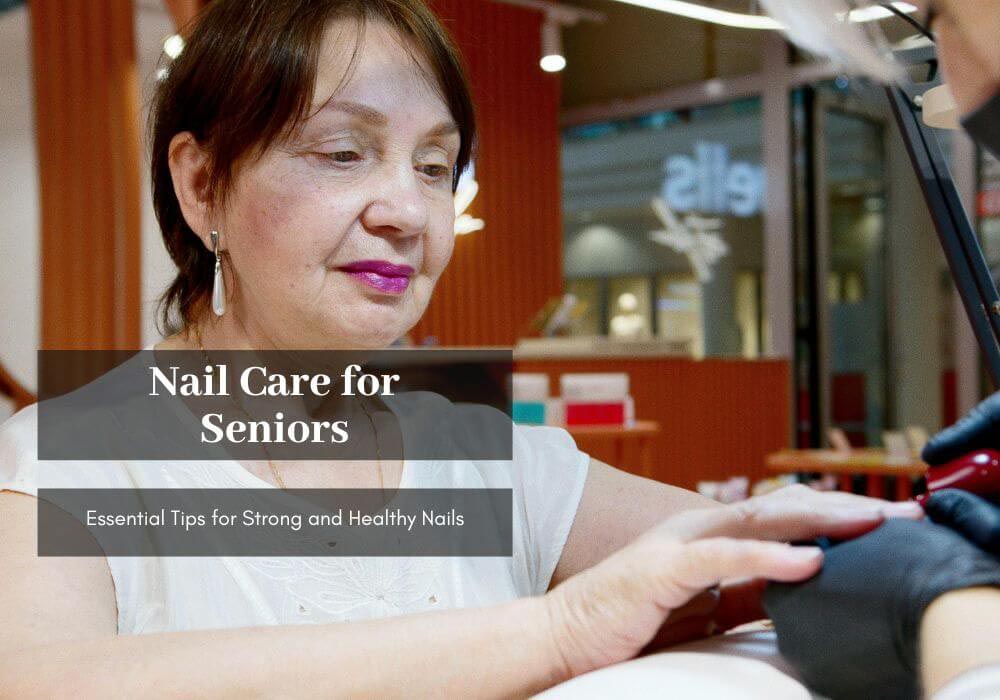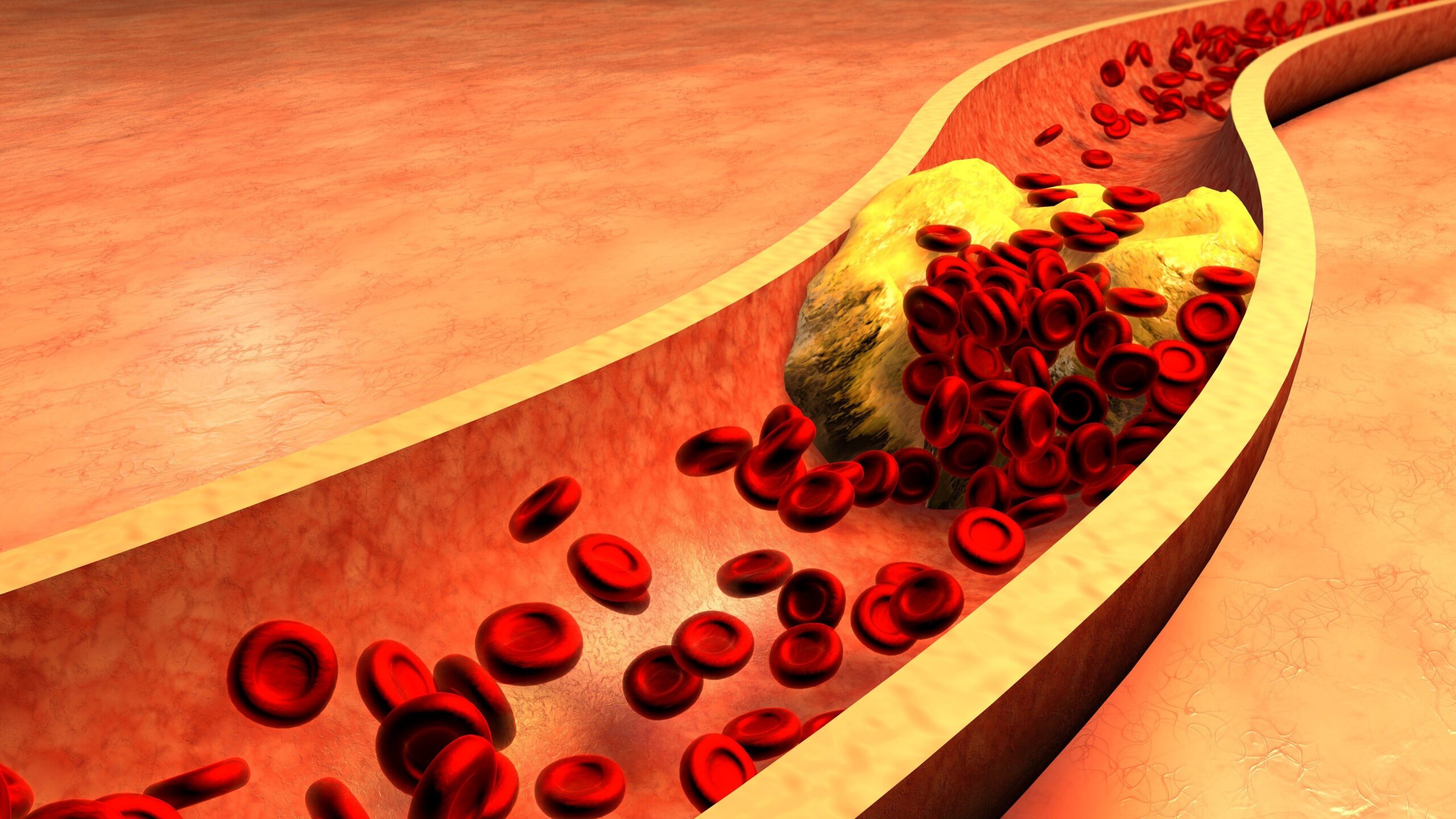For seniors, proper nail care is essential to maintain healthy and strong nails. This article explores the best practices and tips for seniors to keep their nails in optimal condition.
As we age, taking care of our nails becomes increasingly important. Seniors are more prone to brittle nails, infections, and ingrown nails, which can lead to more serious health issues if not addressed. We will discuss effective nail care techniques specifically designed for seniors to avoid such problems.
Regular trimming and shaping of nails is crucial to prevent them from becoming too long or jagged, reducing the risk of ingrown nails and injury. Keeping nails clean and dry helps to prevent fungal and bacterial infections. Moisturizing the nails and cuticles regularly with oil or lotion can help to maintain their strength and flexibility. Lastly, wearing proper footwear that fits well can help to prevent pressure and friction on the nails, reducing the risk of damage. By following these simple nail care guidelines, seniors can ensure strong and healthy nails, promoting overall well-being.
Importance Of Nail Care For Seniors
Proper nail care is essential for seniors to maintain overall health and well-being. Regular trimming and cleaning help prevent infections and discomfort, ensuring they can carry out daily activities with ease and comfort.
Nail health reflects overall well-being:
- Well-maintained nails can indicate good overall health for seniors.
- Paying attention to nail care can help identify underlying health issues early on.
- Strong and healthy nails contribute to a confident and polished appearance.
Common nail problems in seniors:
- Brittle nails: Aging can lead to nails becoming weak and prone to breakage.
- Yellowing nails: As seniors age, their nails may develop a yellowish tint due to fungal infections or certain medications.
- Ingrown nails: Improper trimming or ill-fitting footwear can cause nails to grow into the surrounding skin, leading to discomfort and potential infections.
- Dry and brittle cuticles: With age, cuticles may become dry and flaky, making them more susceptible to infections.
- Thickened nails: Conditions like fungal infections or poor circulation can cause nails to thicken, making them difficult to trim and maintain.
Impact of aging on nail health:
- Reduced blood circulation: As seniors age, blood flow to the extremities, including the nails, may decrease, affecting the delivery of essential nutrients to the nail bed.
- Slower nail growth: Nail growth tends to slow down with age, making it crucial to take care of existing nails.
- Dryness: Aging can lead to drier skin and nails, making them more prone to cracking and splitting.
- Fragile nails: The natural aging process can cause nails to become thinner and more fragile, increasing the risk of breakage.
Proper nail care is essential for seniors to maintain healthy and attractive nails. By addressing nail health concerns promptly, elderly individuals can reduce the risk of infections, injuries, and other complications. Stay tuned for our next section, where we will discuss effective nail care tips for seniors.
Tips For Maintaining Strong And Healthy Nails
Maintaining strong and healthy nails is essential for seniors’ overall well-being. By implementing a regular nail care routine that includes moisturizing, trimming, and protecting nails from harsh chemicals, seniors can enjoy beautiful and problem-free nails.
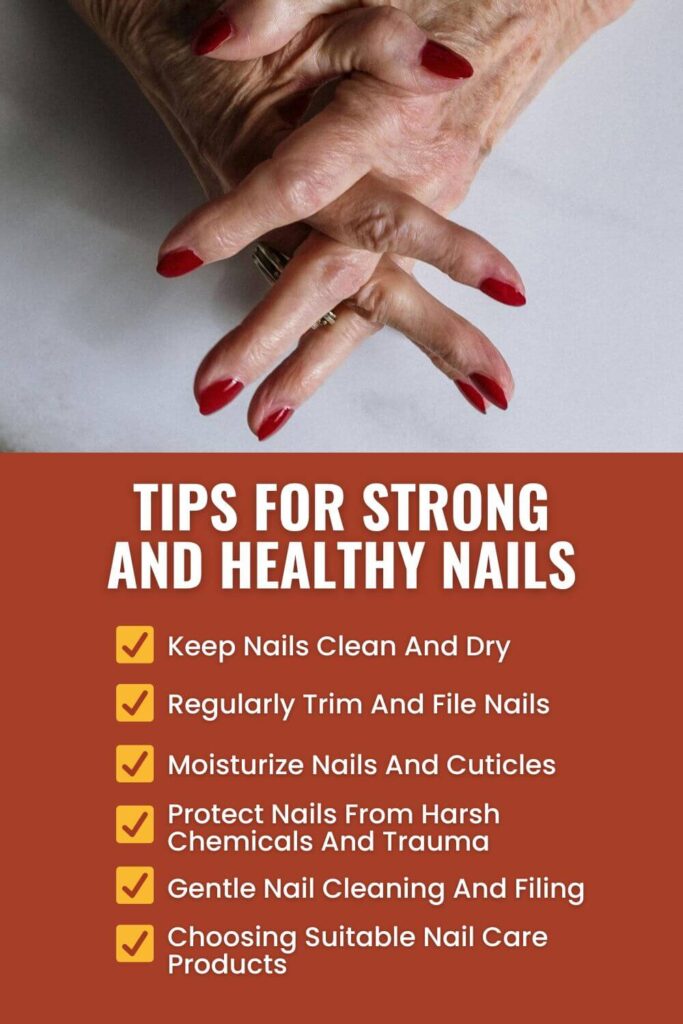
Seniors need to pay special attention to their nail care to maintain their overall health and well-being. Strong and healthy nails are not only aesthetically pleasing but also indicate good overall health. Here are some essential tips to help seniors maintain strong and healthy nails:
1. Keep Nails Clean And Dry:
- Regularly wash your hands and feet with warm water and a gentle soap to keep your nails clean.
- Dry your nails thoroughly after washing to prevent the growth of fungi and bacteria.
- Avoid prolonged exposure to water, as it can weaken the nails.
2. Regularly Trim And File Nails:
- Use sharp, clean nail clippers to trim your nails regularly.
- Trim your nails straight across to avoid ingrown nails.
- File your nails gently to smooth out any rough edges, preventing nail breakage.
3. Moisturize Nails And Cuticles:
- Apply a moisturizing lotion or cream to your nails and cuticles daily.
- Massage the moisturizer into your nails and cuticles to improve blood circulation and promote nail growth.
- Avoid using harsh nail polish removers that contain acetone, as they can dry out your nails.
4. Protect Nails From Harsh Chemicals And Trauma:
- Wear protective gloves when doing household chores or gardening to prevent exposure to harsh chemicals and detergents.
- Avoid using your nails as tools to open packages or perform other tasks that can cause trauma.
- If you regularly get manicures or pedicures, ensure that the salon follows proper sanitation practices to avoid infections.
Following these tips will help seniors maintain strong and healthy nails, promoting overall well-being. Remember, healthy nails are an indicator of good health, so prioritize nail care for a confident and comfortable lifestyle.
5. Gentle Nail Cleaning And Filing:
It is crucial to clean your nails regularly to prevent the buildup of dirt and bacteria. Here are some tips for gentle nail cleaning:
- Soak your nails in warm soapy water for a few minutes to soften them.
- Use a soft bristle brush to gently scrub the nails, focusing on the areas around the cuticles and under the tips.
- Rinse the nails thoroughly and pat them dry with a clean towel.
- Avoid using harsh chemicals or metal tools that can damage the nails.
When it comes to filing your nails, follow these correct techniques:
- Use a fine-grit nail file and gently shape the nails in one direction, avoiding back-and-forth sawing motions.
- Start from the outer edge of the nail and work towards the center, maintaining a rounded or square shape, whichever you prefer.
- Be careful not to file too aggressively, as this can weaken the nails.
6. Choosing Suitable Nail Care Products:
When it comes to nail care products, it’s important to choose wisely. Consider the following tips:
- Opt for gentle and non-toxic nail polish and polish removers that do not contain harmful chemicals.
- Look for moisturizing hand creams that contain ingredients like shea butter or vitamin E to nourish your nails and cuticles.
- If you prefer acrylic nails, make sure to go to a reputable salon that maintains strict hygiene practices.
By following these proper nail care techniques, seniors can maintain healthy and strong nails. Remember to be gentle in your cleaning and filing, trim your nails correctly, take care of your cuticles, and choose suitable nail care products. Your nails will thank you for the extra attention, and you’ll enjoy beautiful and well-maintained nails for years to come!
Incorporating Healthy Habits For Nail Care
Discover the importance of incorporating healthy habits for nail care in seniors. Maintain strong and healthy nails through simple routines and proper nutrition, promoting overall well-being.
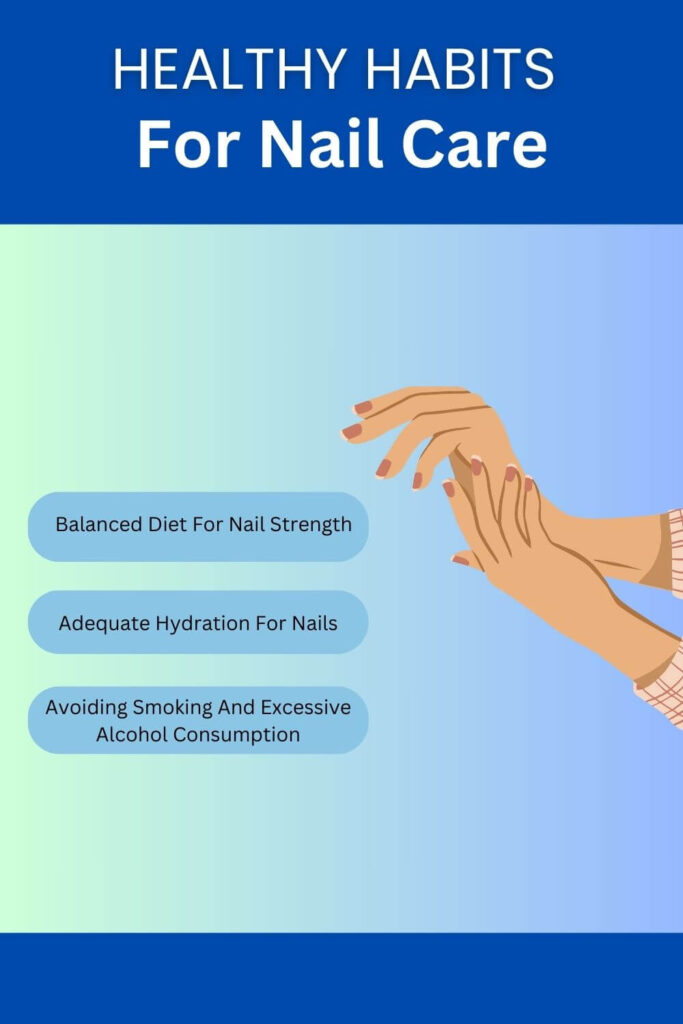
As we age, our nails can become more brittle and prone to breakage. However, there are several healthy habits that seniors can incorporate into their daily routines to maintain strong and beautiful nails. By paying attention to their diet, hydration levels, and lifestyle choices, seniors can promote nail health and prevent common issues.
Let’s explore some of these essential habits:
Balanced Diet For Nail Strength
- Consume foods rich in vitamins and minerals: A diet that includes nutrient-dense foods can contribute to stronger nails. Incorporate foods like leafy greens, eggs, lean meats, and fish that provide essential nutrients such as biotin, vitamin E, and omega-3 fatty acids.
- Increase protein intake: Protein plays a crucial role in nail growth and strength. Include foods like beans, legumes, tofu, poultry, and dairy products to ensure an adequate protein intake.
- Stay hydrated: Proper hydration helps in maintaining nail health by preventing dryness and brittleness. Drink an ample amount of water throughout the day to keep nails moisturized from within.
Adequate Hydration For Nails
- Moisturize nails and cuticles regularly: Applying a moisturizing cream or oil to nails and cuticles helps to prevent dryness and splitting. Look for products containing ingredients like shea butter, jojoba oil, or vitamin E for added moisturizing benefits.
- Wear gloves while doing household chores: When performing tasks that involve water or exposure to harsh chemicals, protect your nails by wearing gloves. This can minimize the risk of nails becoming dehydrated and weak.
Avoiding Smoking And Excessive Alcohol Consumption
- Quit smoking: Smoking not only harms overall health but also negatively impacts nail condition and appearance. Smoking reduces blood flow to the nail bed, resulting in weakened and discolored nails.
- Limit alcohol consumption: Excessive alcohol intake can dehydrate the body, leading to dry and brittle nails. Moderating alcohol consumption is essential for maintaining healthy nails.
Incorporating these healthy habits into your daily routine can significantly improve the condition of your nails and promote overall nail health. By maintaining a balanced diet, staying hydrated, and avoiding smoking and excessive alcohol consumption, seniors can enjoy strong and beautiful nails.
Remember, by taking care of your nails, you are also taking care of your overall well-being. So, start implementing these habits today and watch your nails thrive!
Addressing Common Nail Issues In Seniors
Nail care is crucial for seniors in addressing common nail issues. By providing proper guidance and assistance, seniors can maintain healthy and well-groomed nails, reducing the risk of infections and other related problems.
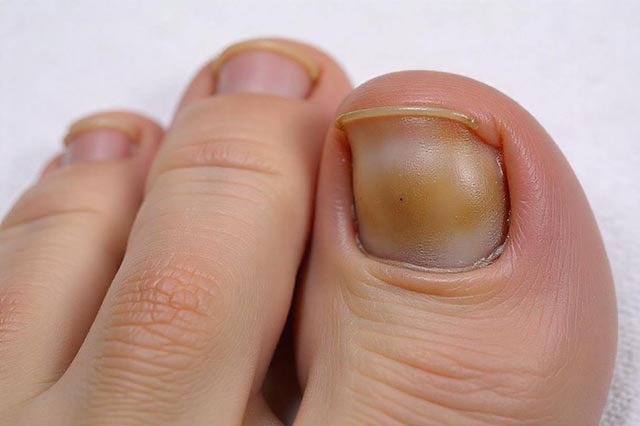
Brittle nails and weak nail beds:
- Brittle nails are a common nail issue among seniors. This occurs when the nails become fragile and easily breakable. Weak nail beds can also contribute to this problem, resulting in nails that split or peel easily. To address these common issues, seniors can consider the following tips:
- Keep nails well moisturized: Apply a nourishing nail oil or cream regularly to hydrate the nails and prevent them from becoming dry and brittle.
- Avoid harsh chemicals: Exposure to chemicals, such as cleaning products or nail polish removers, can weaken the nail beds and make nails more prone to breakage. Seniors should try to minimize contact with these substances or use gloves to protect their nails.
- Maintain a balanced diet: A nutritious diet rich in vitamins and minerals can promote healthy nail growth. Seniors should include foods high in biotin, iron, and zinc, such as eggs, nuts, leafy greens, and lean meats, in their diet.
Nail fungal infections:
- Nail fungal infections are another common issue that can affect seniors. Fungal infections can cause discoloration, thickening, and brittleness of the nails. To address this concern, seniors can try the following:
- Practice good foot hygiene: Keeping the feet clean and dry is essential to prevent fungal infections. Seniors should wash their feet regularly, making sure to dry them thoroughly, especially between the toes.
- Wear breathable footwear: Closed shoes can create a warm and moist environment, ideal for the growth of fungi. Seniors should opt for breathable footwear, such as cotton socks and open-toed shoes, to allow proper air circulation.
- Use antifungal treatments: Over-the-counter antifungal creams, powders, or nail polishes can be effective in treating mild fungal infections. Seniors should follow the instructions carefully and consult a healthcare professional if the infection persists or worsens.
Ingrown toenails and their prevention:
- Ingrown toenails occur when the edge of the nail grows into the surrounding skin, causing pain, swelling, and even infection. To prevent ingrown toenails, seniors can consider the following tips:
- Trim nails properly: Seniors should trim their nails straight across and avoid rounding the corners, as this can increase the likelihood of ingrown nails.
- Wear comfortable footwear: Tight shoes or high heels can exert pressure on the toes, leading to ingrown toenails. Seniors should choose shoes that provide adequate toe space and support.
- Maintain proper foot hygiene: Keeping the feet clean and dry can help prevent ingrown toenails. Seniors should wash their feet regularly, dry them thoroughly, and apply foot powder to absorb excess moisture.
Remember, regular nail care and attention to these common nail issues can help seniors maintain healthy and strong nails. If seniors have any concerns or persistent problems, it is always best to consult a healthcare professional for appropriate diagnosis and treatment.
Seeking Professional Help For Nail Care
Professional help for nail care is essential for seniors to ensure healthy and well-maintained nails. By seeking the expertise of a nail care specialist, seniors can receive personalized treatments and grooming to address their specific needs, promoting overall nail health and reducing the risk of infections or complications.
Importance Of Regular Check-Ups With A Podiatrist
Regular check-ups with a podiatrist are crucial for seniors when it comes to nail care. These appointments provide an opportunity for professionals to assess the overall health of the feet and nails, identify any potential issues, and provide appropriate treatments.
Here are some key reasons why regular check-ups with a podiatrist are essential:
- Preventing complications: Podiatrists are trained to detect early signs of nail problems, such as ingrown nails, fungal infections, or brittle nails. By addressing these issues early on, potential complications can be prevented.
- Diagnosing underlying conditions: Nail abnormalities may indicate underlying health conditions, such as diabetes, circulatory problems, or neuropathy. Regular check-ups allow podiatrists to identify these conditions and recommend further medical intervention if necessary.
- Trim and shape nails properly: As we age, it becomes more challenging to maintain proper nail care. Podiatrists can help seniors maintain the correct nail length and shape, reducing the risk of painful ingrown toenails or nail-related injuries.
- Proper nail and foot hygiene: Podiatrists can provide seniors with helpful tips and advice on maintaining good nail hygiene, including cleaning techniques, moisturizing, and proper footwear choices. By following these recommendations, seniors can avoid common nail problems and maintain healthy feet.
Professional Treatments For Nail Issues
When it comes to addressing nail issues in seniors, podiatrists offer a range of professional treatments. These treatments are tailored to the specific needs of each individual and aim to improve the health and appearance of the nails. Here are some common professional treatments for nail issues:
- Trimming and filing: Podiatrists are skilled in safely trimming and filing nails, particularly for seniors who have difficulty doing it themselves. This helps prevent ingrown nails and maintains the overall health of the nails.
- Ingrown toenail treatments: Ingrown toenails can be extremely painful and susceptible to infection. Podiatrists can provide various treatments for ingrown toenails, including temporarily lifting the nail, applying medication, or in severe cases, performing a minor surgical procedure to remove a portion of the nail.
- Fungal nail treatments: Fungal nail infections are common among seniors and can cause thickened, discolored, or brittle nails. Podiatrists can offer treatment options such as antifungal medications, topical solutions, or laser therapy to effectively eliminate the infection and restore healthy nails.
- Nail repair and reconstruction: For seniors with damaged or deformed nails, podiatrists can provide nail repair and reconstruction techniques. This may involve using specialized materials to improve the appearance and function of the affected nails.
When To Consult A Healthcare Professional
While regular check-ups with a podiatrist are essential, there are instances when seniors should consult a healthcare professional promptly. If any of the following situations occur, it is crucial to seek professional advice:
- Severe pain or discomfort: Persistent or severe nail pain should not be ignored, as it may indicate an underlying issue that requires medical attention.
- Signs of infection: If there are signs of infection, such as redness, swelling, warmth, or discharge around the nails, it is important to consult a healthcare professional for proper diagnosis and treatment.
- Difficulty in daily activities: If nail issues interfere with daily activities like walking or putting on shoes, seeking professional help can provide relief and restore mobility.
- Worsening or recurring problems: If nail issues persist or worsen despite at-home care and remedies, it is advisable to consult a healthcare professional for a thorough evaluation and appropriate treatment.
Remember, seeking professional help for nail care ensures that seniors receive the best possible care, preventing complications and maintaining overall foot and nail health.
Frequently Asked Questions Of Nail Care For Seniors
What Are Some Common Nail Problems For Seniors?
As people age, they may experience common nail problems such as brittle nails, fungal infections, and ingrown toenails. These issues can be caused by poor blood circulation, improper nail care, and certain medical conditions. It’s important for seniors to maintain good nail hygiene and seek professional help if they encounter any problems.
How Can Seniors Maintain Healthy Nails?
Seniors can maintain healthy nails by keeping them clean and dry, trimming them regularly, moisturizing the cuticles, avoiding harsh nail products, and wearing proper footwear. It’s also important to eat a balanced diet rich in vitamins and minerals that promote nail health.
Regular check-ups with a podiatrist can help detect and treat any nail issues.
Are There Any Special Considerations For Seniors’ Nail Care?
Yes, there are a few special considerations for seniors’ nail care. Due to decreased flexibility and mobility, it may be challenging for seniors to reach their own toes. In such cases, they can seek assistance from a caregiver or visit a professional nail salon.
Additionally, seniors should be cautious when cutting their nails to avoid cuts or infections.
Maintaining nail care is crucial for seniors to maintain their overall well-being and quality of life. By following these simple tips and practices, seniors can keep their nails clean, strong, and healthy. Regularly trimming and filing nails, moisturizing the cuticles, and avoiding harsh chemicals can prevent common nail problems like infections and ingrown nails.
It is also essential for seniors to be aware of any changes or abnormalities in their nails and seek medical advice if necessary. Additionally, proper nutrition and hydration play a vital role in promoting nail health. As we age, it becomes even more important to prioritize self-care, including nail care.
By incorporating these easy steps into their routine, seniors can enjoy stronger, more beautiful nails, contributing to their overall well-being and confidence. Ensure to give your nails the attention they deserve, and they will reward you with healthy and beautiful hands.
YOU CAN ALSO READ:
*15 Post Retirement Activities You Can Choose To Avoid Depression
*What Are the Stages of Retirement & What to Do During That Time?
*Best 10 Dress Code Ideas: What to Wear to A Retirement Party?
*Best Retirement Party Decorations Ideas to Make It Memorable
Publisher: Source link

